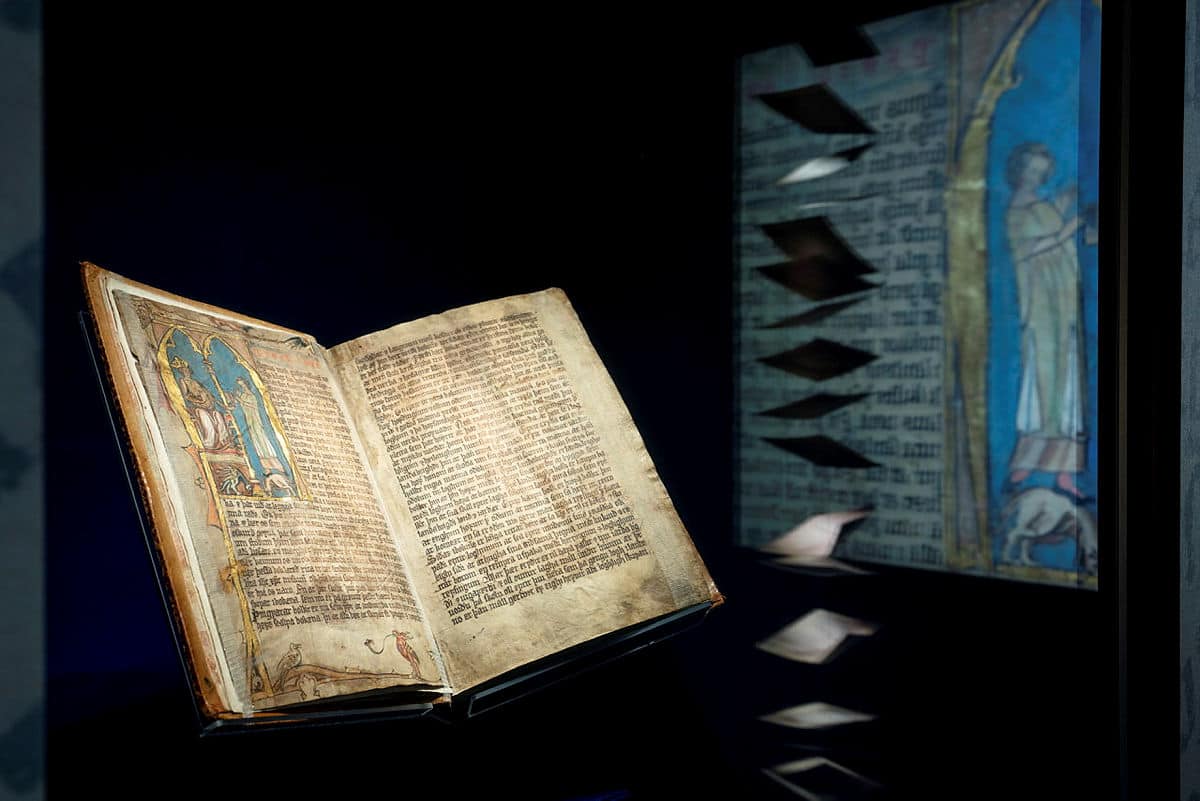
The National Law Anniversary 2024
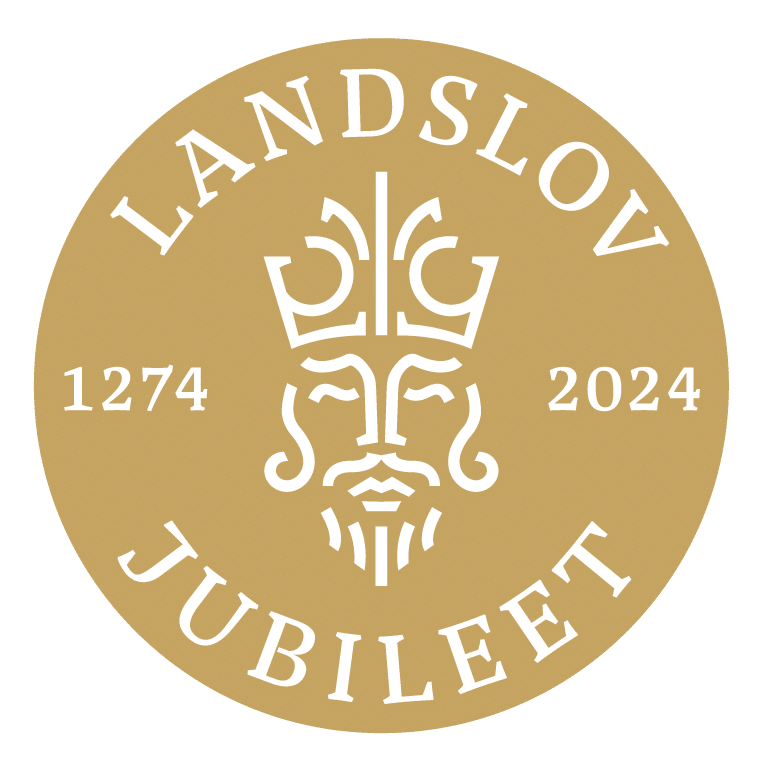
The law that changed Norway
In 2024, we celebrate the 750th anniversary of Magnus Lagabøtes landslov (“Magnus the Lawmender’s National Law”). The National Library of Norway is the national coordinator of the National Law Anniversary 2024 (Landslovjubileet 2024), and throughout the year we will commemorate and highlight this all over the country.
To understand the time we live in, and to be able to say something about the future, we need to know about our past. The National Law Anniversary 2024 marks the beginning of our work to bring our knowledge of Norwegian medieval history from the intellectual sphere into our shared consciousness as a nation.
Summer opening hours: Monday to Saturday: 10am — 5pm. Sunday: Closed. Admission is free of charge.
Exhibition
The exhibition Upholding the law: Magnus the Lawmender’s National Law, 1274–2024 will be a rare opportunity to encounter the medieval period up close. For the first time, we have gathered unique hand-written books made in Norway in the medieval period, which until now have been part of foreign collections.
From 1 February to 14 September, we will make this forgotten piece of Norwegian cultural history accessible to the public in Norway.
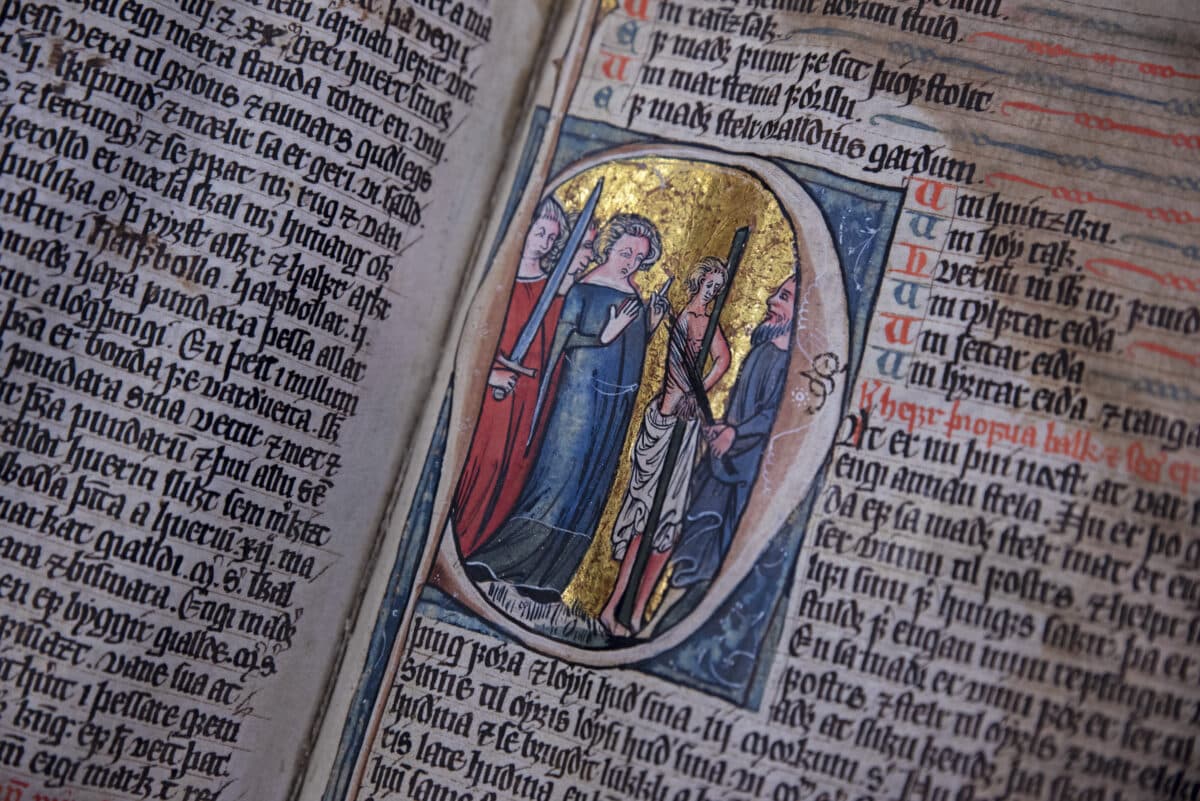
In the exhibition you will have the opportunity to see some of the most beautiful specimens of Magnus the Lawmender’s National Law, in addition to Heimskringla, Gulatingslova, the Kristina Psalter and much more. Together, these treasures tell a story of how the Norwegian state and identity developed, and of how the entire country was unified under a single code of law.
Indulge yourself in the story of Norway’s medieval laws this summer.
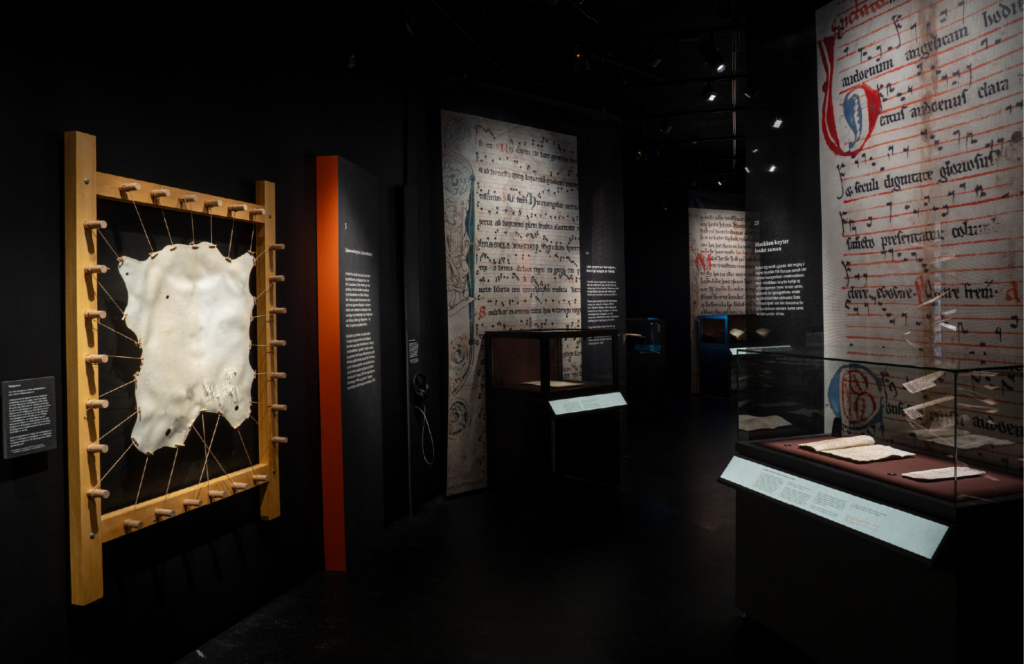
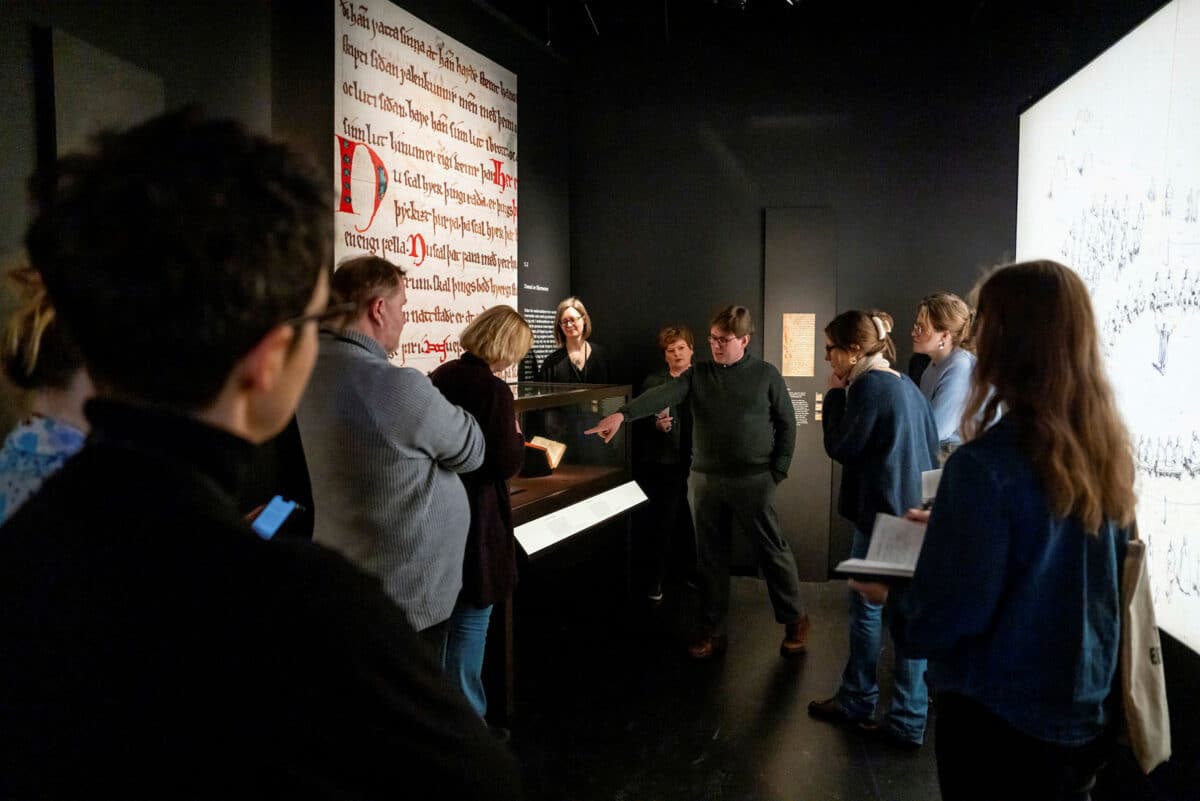
Guided tour
Interested in learning about the National Law and medieval Norway, but don’t know where to start? Join our guided tour! We’ll take you through the exhibition and provide context for the law book that shaped the lives of people in Norway for over four hundred years.
What is the National Law of 1274?
In 1274, King Magnus VI introduced a unified code of law that applied to the entire kingdom of Norway for the very first time. The new National Law (Landslova) was a groundbreaking political and legal achievement, and after he died Magnus became known as Lagabøte – “the Lawmender”.
Magnus the Lawmender’s National Law remains one of the most important documents we have from the medieval period in Norway. The law was in force for over 400 years, and contains within it the seeds of the Norwegian Rechtsstaat and the idea of the right to public participation, a key tenet of our democracy.
The National Law built upon the old Norwegian tradition of regional assemblies (known as “Assemblies”). At the same time, it was influenced by groundbreaking contemporary ideas that were flowing through Europe in the thirteenth century. For the first time, women were granted inheritance rights, and poor people unable to feed themselves were no longer to be punished for stealing food. The freedom to roam and forage, which we also enjoy today, is also laid down in the National Law.
The National Law therefore represents a part of Norwegian history that is often overlooked. Norway had close ties with Europe during the medieval period. The Norwegian royal family had marital ties with European royal houses, and the Norwegian elite were educated at universities in Italy and France. Norwegian priests and bishops were in close contact with the Pope in Rome.
Without these European ties, this first uniform code of law would not have come into existence in Norway. Ideas travelled north, and the people of medieval Norway made them their own. The story of Magnus the Lawmender’s National Law is a story of how we become who we are through encounters with others – and about how Norway eventually became the Norway we know today – with influence from the world beyond.
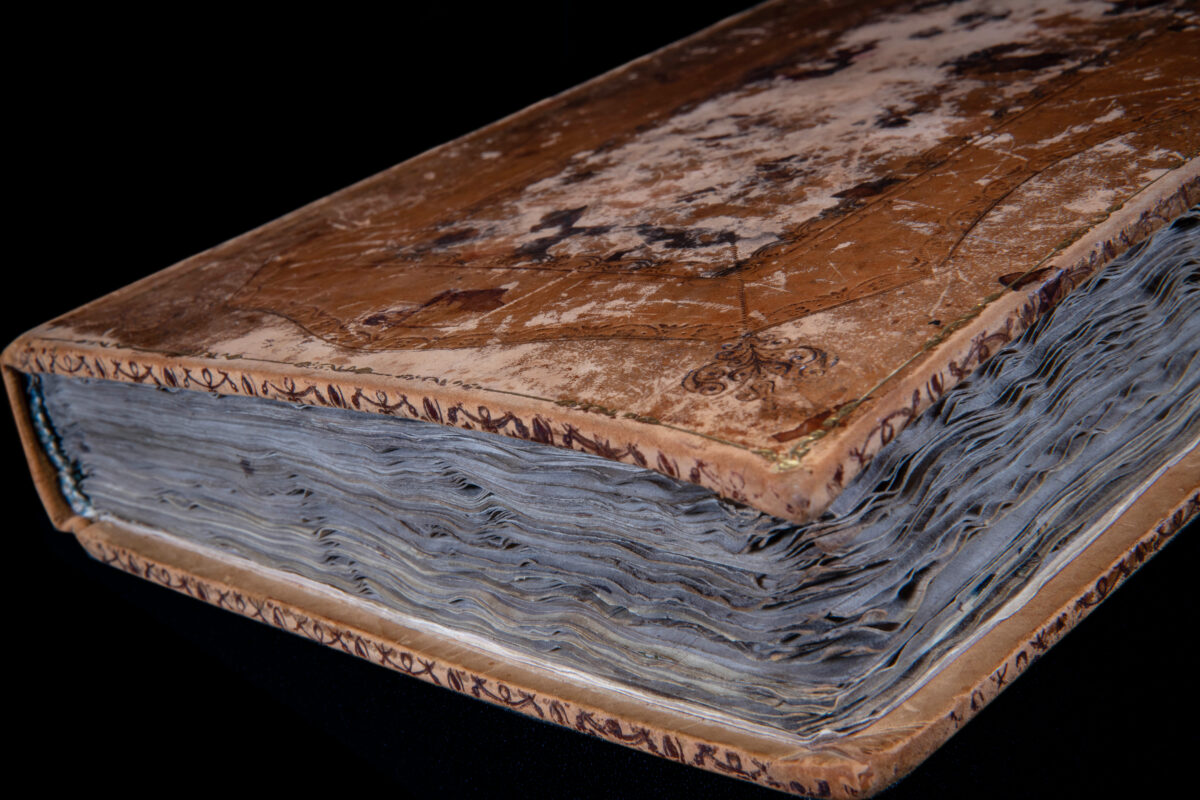
Magnus the Lawmender’s National Law of 1274 was the first functional, nationwide law in Europe. The law was in force in Norway for 400 years. This National Law introduced a law to Norway that combined an entirely new school of thought from the continent with the Norwegian tradition of regional assemblies (known as “Things”). This law contains within it the seeds of the Norwegian Rechtsstaat and the idea of the right to public participation, a key tenet of our democracy
Magnus the Lawmender was born in 1238, the youngest son of King Haakon Haakonsson and Queen Margrete Skulesdotter. The throne was originally intended for Magnus’s older brother, but when he died suddenly in 1257, Magnus became the heir apparent.
He acceded to the throne in 1263, and as king completed a comprehensive legal work second to none in Norwegian history. For this project, the king and his advisors combined, organised and modernised the laws that applied to rich and poor, in towns and countryside, and even on the wind-blown Atlantic islands under Norwegian rule.
This earned him the nickname Magnus the Lawmender after he died in 1280 – the king who had “mended” the laws.
The National Library is commemorating this anniversary with a major exhibition, several book publications and a rich schedule of events. We are partnering with the Museum of Cultural History, the Norwegian Parliament (Storting), the Supreme Court of Norway and the Royal Collections to hold a joint commemoration in Oslo.
The National Library has been working for a long time to generate more interest and knowledge of this aspect of Norwegian history. This work has included borrowing back valuable manuscripts and conducting research on the National Law and other legislation enacted by Magnus the Lawmender.